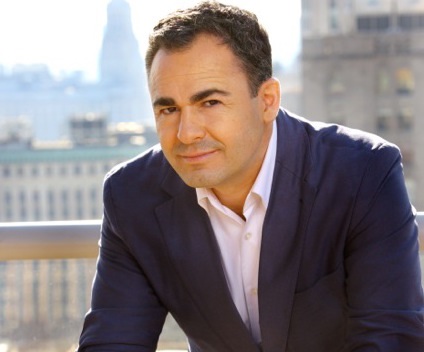
by Luis Gallardo, an Overdrive contributor and CEO of Thinking Heads Americas
China is one of the largest countries in the world, so it’s no surprise that its most internationally recognized brand, Alibaba, does things big.
Alibaba started as a domestic company with global ambitions, and it has become a runaway success story since setting the record for the largest initial public offering in history. It’s run by a man whose dedication to a cause bigger than himself has poised Alibaba to revolutionize China’s e-commerce, banking, and insurance industries — not to mention, expand its global operations.
At 50 years old, Jack Ma is the richest man in Asia, but he’s not in business solely for the money. Rather, he’s a man with a mission to change the way business is done in China, give the country its heart back, and take over the e-commerce world.
Although Alibaba has reached great heights, it had an unlikely beginning. Ma has admitted that at first he was unprepared to run a global company.
When Alibaba launched, it lacked money, tech know-how, and a plan. This should spell doom for any startup, but Ma’s lack of business insight actually allowed him to dream up the big vision that drives his business today. As he put it, the ultimate goal is to “win eBay, buy Yahoo, and stop Google.” That’s big talk for a former English teacher. In his case, thinking big translates to winning big.
Ma’s inspiring leadership style has had a big influence on the way I run my company, and he serves as an excellent example for leaders of budding startups and established companies alike. We can all learn from these four Ma principles:
- Be an authentic leader. Ma hands out cans of Silly String, encourages employees to do handstands in the office, and welcomes his staff’s candid opinions. He’s relatable and credible, and he possesses a strong sense of character. This is crucial for leaders because it fosters loyalty and builds a strong foundation on which our companies can grow. We don’t have to sacrifice our sense of humor just because we’re in charge.
- See through customers’ eyes. Ma runs an e-commerce business, but he attributes his success to not being “a tech guy.” Rather, he views products from his customers’ perspectives, and that allows him to offer relatable, intuitive products.
- Develop a mission. Ma has a grand mission. He wants to revive China’s sense of purpose and culture — things he believes were lost under Mao Zedong’s rule. Ma has condemned corruption and given his employees generous equity shares so they benefit from Alibaba’s success as well.
- Hire rousers. Ma hires enthusiastic entrepreneurs instead of seasoned businessmen because he prefers dedication and innovation to someone who looks good on paper. These are the people we all need in our companies — those who are natural leaders, adaptable, and dedicated to a common goal.
As leaders, our goals might not be as lofty, but we must cultivate a vision for how our companies will improve the lives of our employees and the greater community. This should be more than a feel-good blurb on the company website. We should incorporate that mission into our cultures and implement it at every level to promote a better world.
The days of the one-man-show CEO are gone, and no one demonstrates that better than Ma. When we focus on hiring the diverse, top-notch employees we need and treating them with honesty and respect, we’ll have a dream team of rousers ready to take on the biggest companies in the game.
Luis Gallardo is CEO of Thinking Heads Americas, a team specializing in developing and structuring the ideas, values, projects, and contents of the clients it represents. Luis is formerly the president of brand marketing at Burson-Marsteller for EMEA, as well as director of global brand strategy at BAV Consulting. He’s an award-winning author and holds an MBA from IMD in Switzerland and a master’s degree in international relations from the Lancaster University in the U.K.
Categories: general Guest contributors international Lessons Learned
